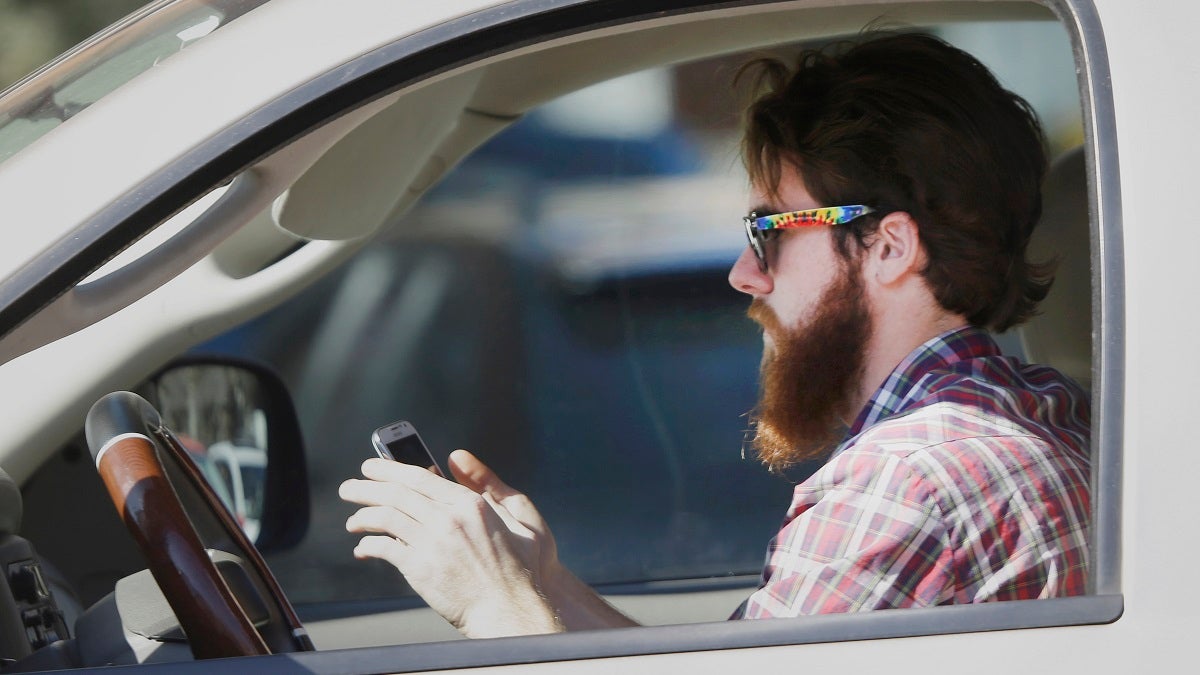Bill allowing police to search cell phones of drivers in a crash raises concerns in N.J.

An man works his phone as he drives through traffic in Texas. Proposed legislation would allow police in New Jersey to search the cell phones of drivers involved in accidents to determine if they were texting or talking at the time of a crash. (AP Photo/LM Otero)
Proposed legislation would allow police in New Jersey to search the cell phones of drivers involved in accidents to determine if they were texting or talking at the time of a crash.
The measure is raising some constitutional concerns.
Seton Hall law professor Jenny Carroll questions whether police seizure of the phones is a violation of a driver’s right to privacy.
“To the extent that the Legislature may be able to argue that the driver has ceded some of his privacy interests by being in that accident, you can’t make that argument for the third party whom the driver was potentially in communication with,” she said Tuesday. “And I think that is potentially an issue the Supreme Court is going to have to address as well.”
Carroll says there have been conflicting lower court rulings on the constitutionality of similar laws enacted in Ohio, Florida, Washington, and California.
Opponents also wonder how police would be able to determine if a phone was being held at the time of a crash or was being legally operated in hands-free mode.
“You can talk and text hands free and you can use the phone while stopped even in traffic. So it’s going to be real hard in general to establish if illegal phone use was done,” said Steve Carrellas of the New Jersey chapter of the National Motorists Association
The American Civil Liberties Union of New Jersey also opposes the measure, saying it infringes on privacy rights and is likely to face a constitutional challenge.
WHYY is your source for fact-based, in-depth journalism and information. As a nonprofit organization, we rely on financial support from readers like you. Please give today.




